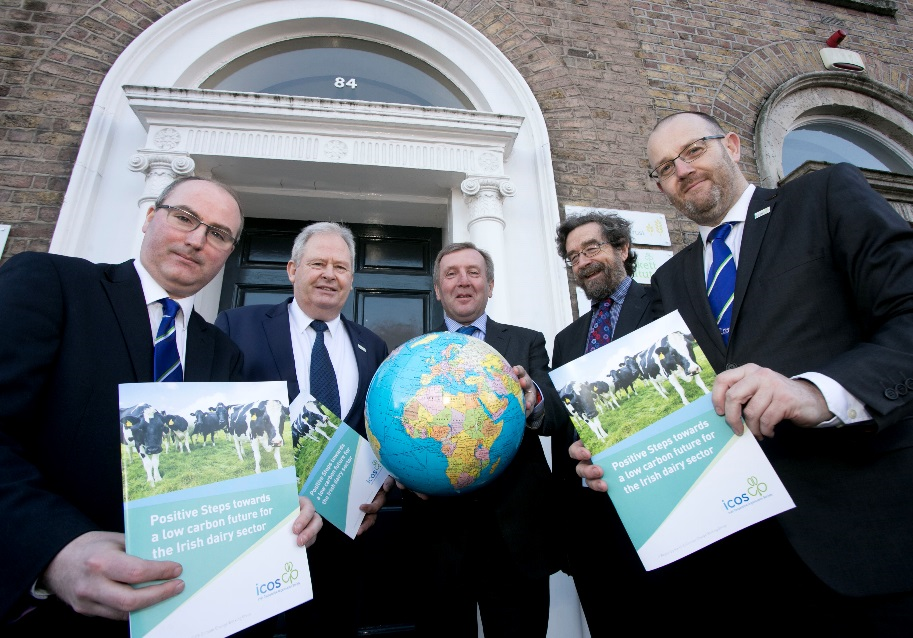Minister Creed launches the ICOS Climate Change Report “Positive steps towards a low carbon future for the Irish dairy sector”
 Eamonn Farrell, Secretary ICOS Climate Change Working Group, Martin Keane, ICOS President, Minister Michael Creed and Prof
Eamonn Farrell, Secretary ICOS Climate Change Working Group, Martin Keane, ICOS President, Minister Michael Creed and Prof
On 24th January, ICOS launched a newly published report called “Positive steps towards a low carbon future for the Irish dairy sector”. Michael Creed, Minister for Agriculture, Food and the Marine and Professor John Fitzgerald, the Chair of the Government’s Advisory Council on Climate Change attended the launch in Plunkett House.
Following the Paris Climate Agreement, the ICOS Board in 2016 decided to establish a working group on climate change including personal from the environment and farm services teams in dairy processing co-operatives and chaired by Martin Keane, ICOS President.
The Report recognises that there is no magic bullet solution to climate change and agriculture as farm based emissions result from complex natural processes. This was recognised by the European Council in 2014. Our core recommendation is that the effective and widespread sharing of win-win solutions that generate efficiencies at farm level and benefits to the environment is the biggest challenge to address.
There are a range of technical and cost effective mitigation options that ICOS believes should be incorporated into a structured knowledge sharing programme on climate change mitigation. These include measures around grassland management, the inclusion of clover in swards, manure management, nutrient management planning, the use of protected urea, improved EBI, sexed semen, reducing the age at first calving, nutrition, animal health and energy efficiency.
Furthermore, we need to collectively support the vision and capabilities of farmers to lead the global response to climate change. We need to stop thinking of climate change as a zero sum game. It is counterproductive.

The Report concludes that the farming community can positively address the issue of climate change with appropriate support. For example, individual farmers and groups of farmers working through co-operatives can further mitigate against climate change through the uptake of agro-forestry using native trees and renewable energy technologies such as biogas from anaerobic digestion and solar panels on farm buildings.
In conclusion, as an industry we acknowledge that climate change is a reality and we recognise that the dairy industry has a responsibility to develop in the post quota era in a manner that protects the environment, supports family farms and fosters economic activity in rural areas.
The report outlines several positive steps that the Irish dairy sector and key stakeholders can take to ensure a low carbon future. However, our recommendations will require the full backing and support of the Government and State agencies to ensure their implementation.